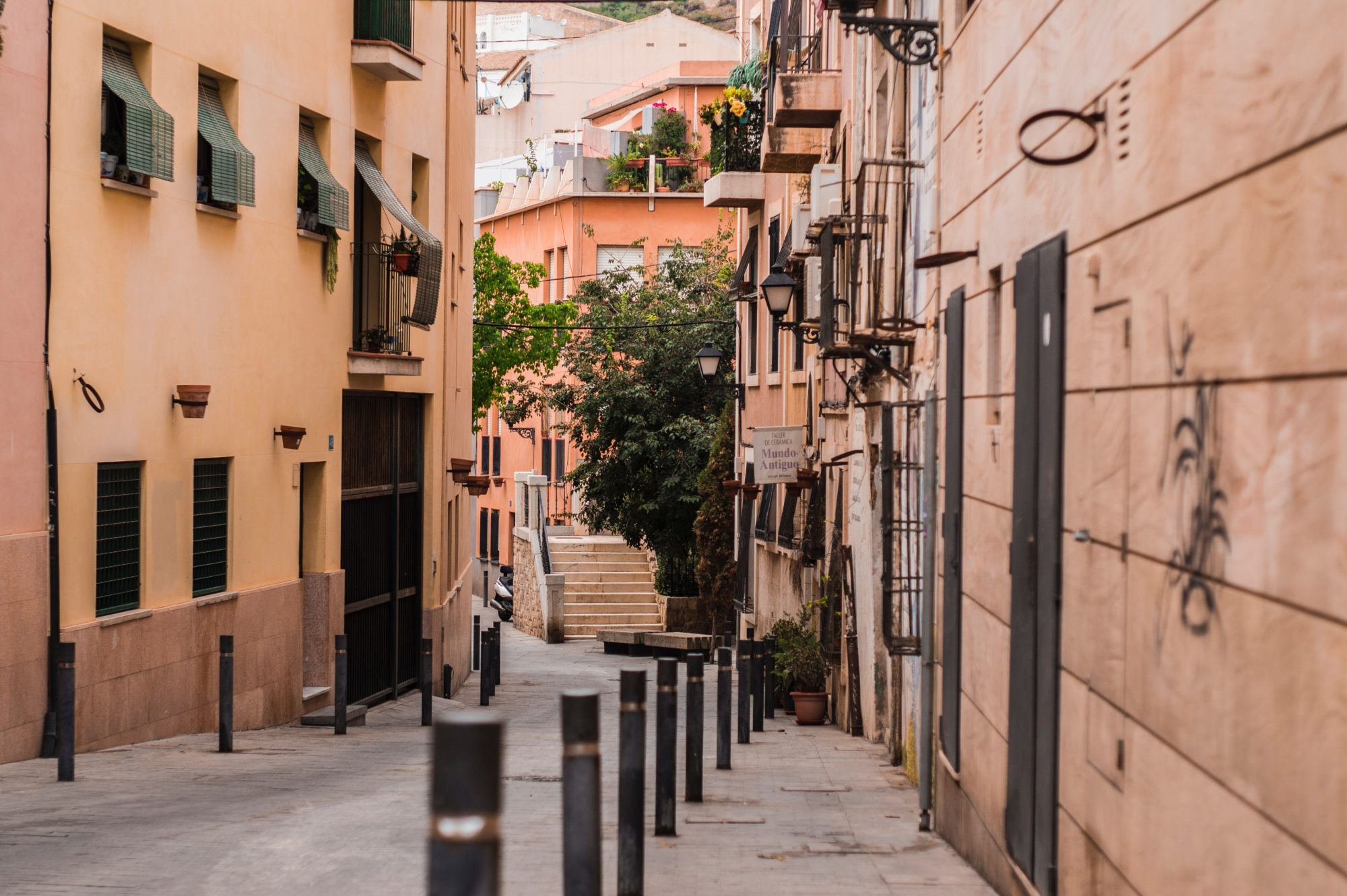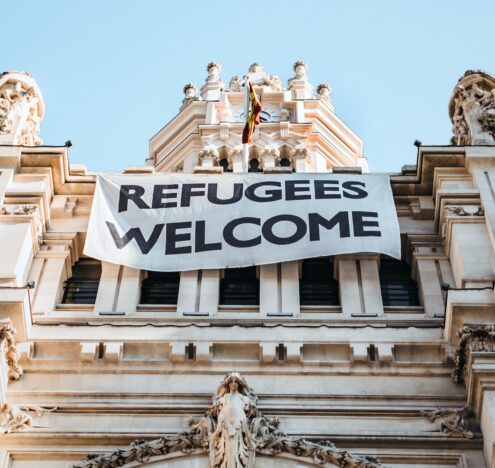Spain is generally considered a healthy democracy, but troubling trends lie beneath the surface. Spain consistently violates international conventions — particularly in its treatment of the Catalan and Basque minorities — and has gone so far as to hinder, and even block the work of the press with draconian legislation.
The end of Francisco Franco’s dictatorship in 1976 did not bring about the much-anticipated peace and democracy to Spain. In the past decades, Spain has had numerous democratic setbacks and perpetuated a series of human rights violations. From countless cases of torture and arbitrary arrests to the forced closure of newspapers in the Basque Country and interference in Catalonia’s independence process, it would seem that upon closer examination, Spain’s democratic sheen is not quite so glossy.
A major indicator of Spain’s democratic decline is the persecution of artists, in particular, musicians, on the grounds of “extolling terrorism.” A recent report found that Spain incarcerates more artists than any country in the world. Twitter users and journalists have also been accused, and in some cases convicted, for covering demonstrations, tweeting jokes about members of the Francoist dictatorship, and supporting the Basque and Catalan causes.
Since 2015 the Spanish government has used another tool to arrest people on the basis of “extolling terrorism:” the so-called “Gag Law” (Ley Mordaza). This law defines public protest in front of Parliament and other government buildings as a “disturbance of public safety” punishable by a fine of 30,000 euros. It also implements grave fines for anyone who joins in spontaneous protests near utilities, transportation hubs, nuclear power plants, or similar facilities. And in a direct attack on the press, the “unauthorized use” of images of law enforcement authorities or police can also draw a 30,000 euro fine — making it nearly impossible to document abuses committed by law enforcement officers.
From countless cases of torture and arbitrary arrests to the forced closure of newspapers in the Basque Country and interference in Catalonia’s independence process, it would seem that upon closer examination, Spain’s democratic sheen is not quite so glossy.
But the use of national security concerns as an excuse to limit freedom of expression is not new. The Spanish government has closed newspapers, outlawed political parties, and tortured journalists throughout the past few decades in the Basque Country. It doesn’t come as a surprise that the ideology of “everything is ETA” — used for many years to persecute and criminalize movements, politicians, journalists, newspapers, and citizens of the Basque Country — is also being used to repress political movements in Catalonia.
ETA, or “Basque Homeland and Freedom” in its Basque acronym, was a separatist group active from 1959 until 2018; responsible for a series of murders and bombings throughout Spain in its struggle for independence from the Franco dictatorship. Even though the group has dissolved, its former existence is still used as an excuse to persecute opponents of the Spanish government.
REPRESSION IN CATALONIA
With the dissolution of the ETA, the spotlight has migrated from the Basque Country to Catalonia. The independence referendum of Catalonia, held in October 2017, was met by immense violence from the Spanish police; causing an international commotion due to images of elderly people being beaten while trying to vote.
After the Catalan parliament attempted to declare independence, Spain invoked Article 155 of the Spanish constitution, suspending regional autonomy. After Catalonia regained its autonomy, Catalan politicians were arrested and others forced into exile, as arrests of activists and politicians continued.
In October 2018, Spain’s Supreme Court ordered a total of 18 Catalan separatist leaders to stand trial. Prosecutors are seeking jail terms of up to 25 years for crimes such as disobedience, rebellion, and embezzlement of public funds. All 18 leaders deny the charges and their lawyers claim that the trial is political. Twelve of those leaders have been tried in Madrid by the Spanish Supreme Court and are awaiting their sentences. Six others have yet to face trial in the High Court of Justice of Catalonia.
Moreover, several high-profile Catalan leaders, including former President Carles Puigdemont, are living in exile after the justices of their new countries denied Spain’s repeated requests for extradition. Other Catalan leaders, such as Anna Gabriel, leader of the far-left political party Popular Unity Candidacy (CUP) and Marta Rovira, from the Republican Left of Catalonia (ERC), also decided to self-exile – in their cases, in Switzerland – to escape from a justice they considered partial and persecutory.
Aleix Sarri, International Affairs Coordinator to the Catalan President, says he’s pessimistic about the future of the Catalan leaders who are facing trial. To Sarri, “the Spanish justice and, by extension, the Supreme Court that judges the case, is extremely politicized. There is no fair trial, and in the whole judicial process there is a will to punish.”
Mikko Kärnä, Finnish politician and long-time supporter of Catalonia’s independence movement agrees with Sarri, saying that “Spanish justice is corrupt and political. We have clear evidence that the Popular Party (PP) is in control of the Supreme Court chamber, however, the biggest problem is that it is possible in Spain to charge politicians and civil society leaders for fulfilling their political mandates given to them by their voters.”
Spain ”is a disgrace to Europe,” he sentences
On the other hand, Miquel Iceta, leader of the Socialist Party of Catalonia (PSC), the Catalan wing of the ruling center-left PSOE, believes in Spain’s justice system. He says he has“trust in the Spanish judicial system, in its independence and its impartiality; which does not prevent that in certain cases, we can legitimately disagree, but always with respect and legal argumentation.”
ARRESTS IN CATALONIA
In Catalonia, the two main Spanish right-wing leaders, Pablo Casado ( PP) and Albert Rivera (Citizens), have joined together to try to outlaw the left-wing pro-independence CUP party. Casado and Rivera want to prevent the entrance of any regional or pro-independence political party to the Spanish Congress by creating a barrier clause. They have also accused the CUP of promoting violence due to its support for social organizations which carry out acts of peaceful civil disobedience in Catalonia. The international press has denounced the brutal repression of those trying to vote, but there have been no reports of any violent act committed by any individual or group of the pro-independence camp. Shortly after the referendum, Spain even threatened to arrest over 700 Catalan mayors for their support to the pro-independence movement.
Last year, several members of the Committees for the Defence of the Republic (CDR), a group of small organisations whose objective is to guarantee the independence of Catalonia, were arrested and accused of inciting rebellion and carrying out acts of terrorism for closing down roads, booing Spanish King Felipe VI, and obstructing toll booths. And this year, at least two mayors and several members of the CDR have been arrested and accused of “public disorder” for demonstrating in support of a Catalan republic.
Many international human rights organizations (including Amnesty International, Human Rights Watch, the World Organisation Against Torture, the Electronic Frontier Foundation) and regional and international bodies (including the Commissioner for Human Rights of the Council of Europe and the UN Special Rapporteur on the right to freedom of expression and opinion) have condemned the abuse of Catalan politicians and social leaders during pre-trial detention. They have also come out in opposition to Spain’s counter-terrorism legislation and to its increased restrictions on freedom of expression (including internet freedom) and peaceful assembly.
THE FAR RIGHT: VOX PARTY
In December 2018, Vox, a far-right Spanish political party, gained seats for the first time in a regional parliament. It gained 12 seats at the parliament of Andalucia, the southernmost region of Spain, with a discourse against migrants, Muslims, Catalan independence, and human rights (in particular women’s and LGBT rights). It was the first time a far-right political party was able to enter a local (or national) parliament since the end of the Franco dictatorship in 1976.
Vox’s political gains are particularly worrisome for three main reasons:
First, the strength of Catalan nationalism has awakened the latent Spanish nationalism of the other Spanish parties. The Catalan conflict funneled all the major political parties an unofficial alliance against the independence of Catalonia, supporting the harsh measures of the judiciary against political and social leaders and denying any debate with the option for independence on the table. The w
Second, Vox’s rhetoric on migration and refugees is gaining traction in Spain as people grow tired with the Spanish Socialist Workers’ Party (PSOE) apparent laxer stance on immigration.
Third, Spain’s PP and Ciudadanos parties are swinging rightward; appearing more similar to far-right European political parties on several key issues.
LIMITED DEMOCRACY
While Spain is not en route to fascism once again, some insidious features of such a regime persist; in particular within the justice system and in much of the political culture. The arrival of Vox as a new player is shaking up Spanish politics – just one instance of the wave of radical right-wing parties gaining traction around the continent and the world. Democracy is becoming increasingly flawed,with basic political and social rights of the population, especially minority populations, being cast aside.
“In Spain, there is a fairly general perception that justice is not totally independent and impartial, and not only in the case of the trial of pro-independence leaders,” says Eva Doya, a political scientist from the Pompeu Fabra University of Barcelona and Sciences Po Paris.
Amid numerous human rights abuses and the unjust trials of Catalan leaders, many in Spain are wondering why European leaders have chosen to remain silent.
Doya joins those who are pressing European leaders to come forward by saying that “I believe that European leaders should facilitate a political solution, especially now that the positions are so far from each other, and before the sentences are issued. When the sentence comes out, it will be too late for one of the parties involved. How to sit at the negotiating table when one of the main claims — the freedom of the independence leaders — can no longer be debated?”
The prison sentences of the Catalan political leaders can be extended at any time. Meanwhile, they remain in prison, prevented from exercising their mandates and from acting politically. Catalan political parties are pressing for a political solution where Spanish political parties agree to sit at a negotiating table. They want the parties to allow a new referendum to take place and for the prisoners to be released; an unlikely scenario in the midst of negotiations to form a new Spanish government in which the PSOE needs the support of the right to continue governing.
In short, Spain is slowly limiting democracy through its persistent violation of human rights and its persecution of those it deems opponents to the regime. These troubling trends move Spain away from the model of a modern European democracy and harken back to the days of the Franco dictatorship where political dissent was repressed. The sentencing of the Catalan political leaders might be a final blow to the democratic image of Spain; demonstrating that peaceful means of political action, such as voting on referenda and non-violent demonstrations, will meet only repression and restriction in Spain.
Raphael Tsavkko Garcia (@Tsavkko_intl) is a Brazilian freelance journalist. His work has appeared in Al Jazeera, The Washington Post, Foreign Policy, World Politics Review, PRI, The Brazilian Report, among other news outlets. He also holds a PhD in Human Rights (University of Deusto).





















